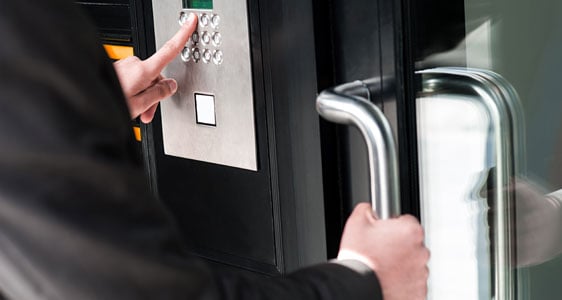
Ensuring the physical safety of a business and its assets is necessary not only to maintain operational efficiency but also for company morale and overall productivity when it's a facility that may routinely have employees entering and leaving after working hours. If a healthcare facility, water treatment plant, or corporate office building were to be breached by someone looking to inflict damage or cause harm to an organization’s people and property, it’s likely that employees will begin to doubt the stability and protection of their workplace and potentially wonder if their next shift may be their last. It’s clear that the best solution to mitigate most workplace violence scenarios is a highly robust access control and visitor management solution to promote a secure and protected work environment for staff and visitors alike, and for many businesses that have access 24/7, a hosted access control platform is the best fit.
While there are various benefits of a hosted access control, it is beneficial to first address the shortcomings of access control systems of the past. Generally, traditional management of employees, vendors and visitors consisted of proprietary software and hardware that was complex and costly to install, operate, and support, usually requiring IT department members to endure lengthy training sessions so that the system remains functioning to keep the organization safe from unexpected intruders. Not only that, but since these systems were typically proprietary, they were incredibly difficult (or completely unable) to integrate to other security systems like alarm monitoring and video surveillance, which is almost a necessity for businesses that allow specific authorized employees to access the facility after hours as it facilitates improved reports in cases of unauthorized intruders.
Any business owner understands that outsourcing certain departments can reduce costs but also allows management the flexibility to spend more time running the business instead of worrying about smaller scale operations; the same can be argued for access control. Deploying remote access control systems can also:
- Save costs of installation due to less equipment at the location thanks to accessible software via a centralized and intuitive web-based interface.
- Prevent the need for technical upgrades of hardware and software.
- Provide a lower annual cost of ownership due to less time spent on server maintenance and software support.
- Easily integrate with video surveillance and alarm monitoring systems.
- Provide more immediate availability of historical data retrieval.
For smaller organizations that cannot justify on-site personnel to manage the access of visitors due to lack of resources, such as a building without a lobby or lack of budget for a receptionist, traditionally visitors push a button and an employee verifies identity and buzzes them in. But what about businesses that require a more strict layer of security? Luckily, a hosted access control solution with an additional remote virtual receptionist kiosk solves that challenge by keeping the workplace free from unwanted or malicious intruders in an efficient yet professional manner:
- When the visitor buzzes the kiosk, it opens a two-way audio feed so the remote operator can ask for the visitor to provide proper identification as the kiosk’s camera captures the information and sends real-time footage to the central station.
- Once identity is verified, either by communicating with an employee or checking a database of pre-approved individuals, the remote operator grants access to the facility.
Hosted access control solutions continue to be implemented by more and more businesses looking to shrink their budgets while maintaining professional and efficient operations. Of course, due to the sensitive nature of sending personal identification credentials over the internet, remotely hosted access control solutions necessitate the use of industry-standard encryption techniques as the data enters and leaves servers, protecting employees and customers against any unauthorized interception while also protecting the organization’s physical assets.
